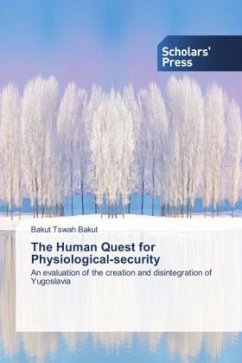The book argues that the satisfaction of human needs is the starting point in the analysis of International Relations and can be classified into basic and higher valued needs. It concludes that while the higher valued needs are rarely satisfied because they do not constitute those needs that the human species will pursue to satisfaction, regardless of the effects on him/her or the society, hence, negotiable, the basic needs of the human specie are non-negotiable. The book evaluated the formation and transitions of the peoples of the now defunct Yugoslavia relating their developments as South-slavs to the quest for welfare, security and identity with the individual as the level of analysis thereby attempts to establish the issues, as they affect his/her search for these factors in the quest for self-determination either as an individual or within a collective aggregation hence, enabled us explained the transitions of the South-slavs from tribal aggregations to the formation and creation of National communities and now States (in Post-Yugoslavia) based on the collective South-slavs identity over the period from 5th century BCE to the early 1990s of the 20th century.
Bitte wählen Sie Ihr Anliegen aus.
Rechnungen
Retourenschein anfordern
Bestellstatus
Storno








